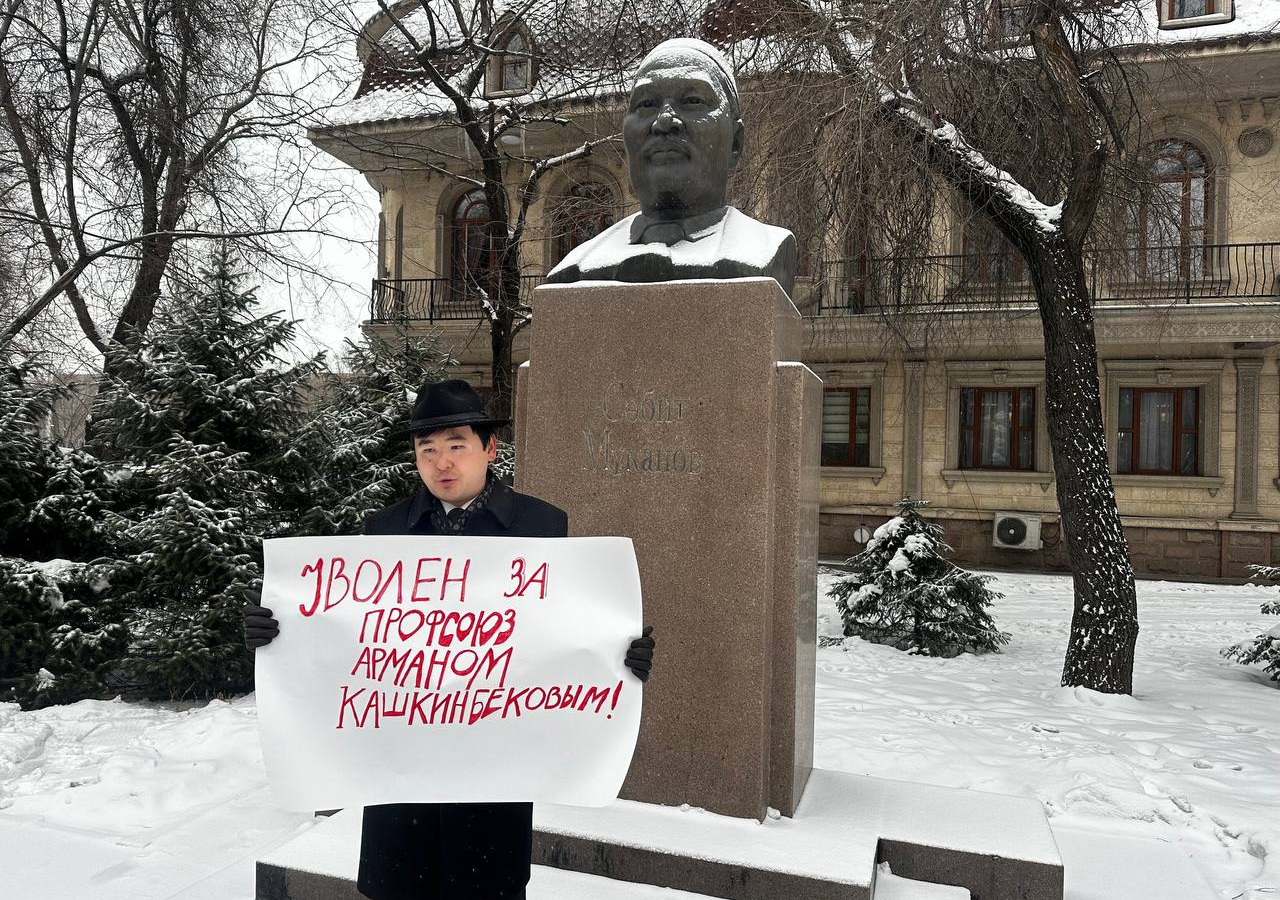Syrym Sharipkhanov, the minister of emergency situations appointed in June last year after forest fires ravaged the north-east of the country, could now be laid off, President Kassym-Jomart Tokayev said on January 25. Tokayev said that Sharipkhanov’s work was not satisfactory and the ministry needed “a more practical approach.”
The reason for Tokayev’s comments against Sharipkhanov was the inadequate response from the officials to the earthquake that rocked the south-eastern Almaty region on the night of January 23. At its epicenter in China’s Xinjiang region, the earthquake had a magnitude of 7.1. At least three people died in China, while only a few dozen people in Kazakhstan went to the hospital for minor injuries. Other, weaker seismic events took place the following days in Xinjiang and were also felt in Almaty.
On January 22, prime minister Alikhan Smailov reported to the president that in 2023 Kazakhstan’s economy grew by 5.1%. Foreign trade turnover increased by 2.2% to $126 billion, according to official data.
An appeals court in Mangistau confirmed on January 24 that the oil worker strike announced on December 11 last year is illegal. Hundreds of workers at West Oil Software, a service company in Zhetybai, have been on strike for more than 45 days, protesting working conditions. The company fired dozens of workers, citing the illegality of their action.
Yerlan Nysanbayev, the minister of ecology, told the press on January 23 that the government is not aware of a settlement of the court case against the companies operating the Kashagan offshore oil and gas project. Last week, Bloomberg reported that the $5 billion fine that the government was ready to impose against the international consortium was to be thrown out if the companies of the consortium agreed to a $110 million charitable donation to the local administration.
Britain-registered Jusan Technologies paid hundreds of thousands of dollars in the framework of a court case against several media outlets, The Bureau of Investigative Journalism reported on January 24. Jusan Technologies paid at least $6,000 to one of its directors, Lord Evans of Watford, at least $64,000 to one of its former directors, Yerbol Orynbayev, who also served as deputy prime minister in Kazakhstan. According to The Bureau, Jusan paid at least £720,000 ($915,000) to RJI Capital, owned by another of its directors, businessman Ron Wahid, for public relations work in the company’s responses to articles published by The Telegraph, The Bureau, and openDemocracy, alleging that former President Nursultan Nazarbayev controlled around $8 billion in assets through charitable foundations. The court case against the latter two was labeled a SLAPP (a Strategic Lawsuits Against Public Participation).
Joint Technologies, a company partly owned by businessman Timur Kulibayev, was fined around 2 billion tenge ($4.5 million) for violations in the framework of a sale transaction and competition laws concerning a liquefied petroleum gas storage unit. Kulibayev, one of Kazakhstan’s richest, is the son-in-law of former President Nursultan Nazarbayev.
An IPO in the Nasdaq garnered the shareholders of fintech Kaspi.kz more than $1 billion, the New York stock market reported on January 19. The initial value of the shares sold gave Kaspi.kz a market capitalization of around $17.5 billion. The shares listed in Nasdaq were offered by Kaspi.kz’s largest shareholders: Mikhail Lomtadze, Vyacheslav Kim, and Asia Equity Partners, (Baring Vostok). Kaspi.kz listed its shares in London (2020) and in Kazakhstan.
On January 22, the National Center for Scientific and Technical Expertise, a state-owned research institute, was ordered by the ministry of science to cancel the order to fire four employees. The Center fired the workers after they had formed a trade union. To date, however, the workers have yet to be reinstated. On January 26, one of the laid-off workers held a one-man picket protesting the pressure against them. According to the freedom of association principles included in Convention 87 of the International Labor Organization, which Kazakhstan signed and ratified, workers have the right to form trade unions.
Marat Zhylanbayev, a political activist, announced a hunger strike on January 24. Last November, Zhylanbayev was sentenced to seven years in prison for having participated in and financed a banned organization. Human rights groups have denounced the charges as fabricated.
Daniyar Moldabekov, a journalist, said on January 24 that security forces visited the printing house where his book is being finalized, requesting access to the draft. Moldabekov wrote a book about Qandy Qantar (Kazakh for ‘Bloody January’, the violent repression of urban protests in 2022) after having reported from the ground in Almaty. According to Moldabekov, the publishing company said that every printing house that they approached now refused to produce the book.
Поддержите журналистику, которой доверяют.








